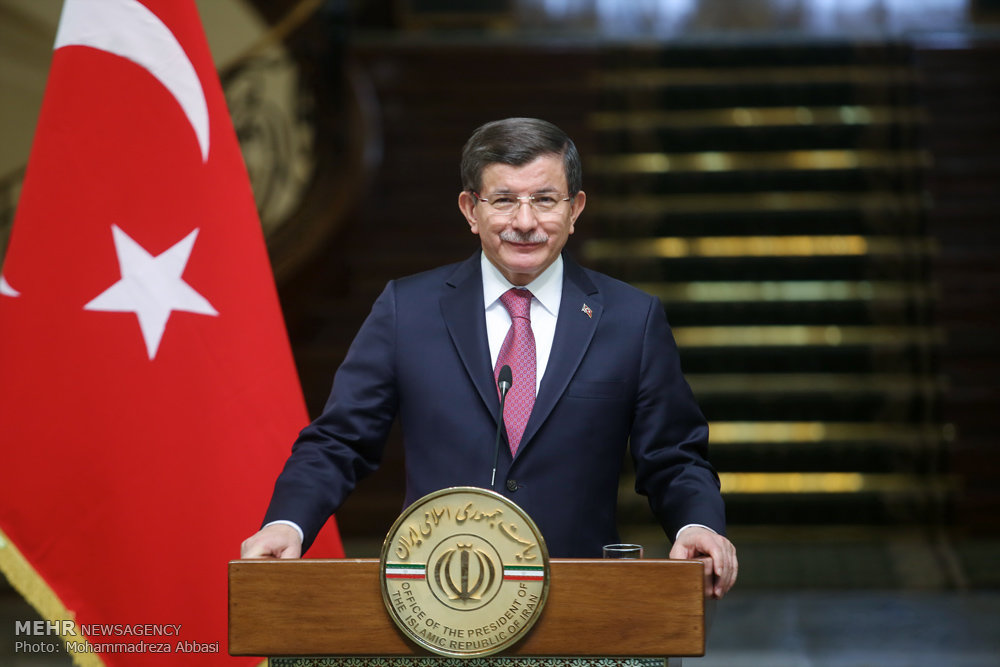Post-modern coup II

Turkish Prime Minister Ahmet Davutoglu has announced that he would not seek to take the helm of the ruling Justice and Development Party (AKP) at the extraordinary meeting of the party leaders, slated for May 22.
The announcement means Davutoglu, currently the president of AK Party, will also step down from his prime minister post. In other words the news actually means he has resigned after all his power and authority was revoked after a gathering of the party’s central executive committee.
The question is why Davutoglu will not nominate as the AKP leader? In many issues Davutoglu has proven he does not share the opinion of Turkish President Recep Tayyip Erdogan. Among many differences we can refer to Erdogan’s push to replace the current parliamentary system of government with a presidential one, and thus, change his ceremonial role into an executive chief. Erdogan has long been seeking to increase presidential authority leading to tensions with his Prime Minister Davutoglu. It seems that Davutoglu does not support the presidential system envisaged by Erdogan, fearing he is pushing Turkey to the verge of authoritarianism.
The development follows as AKP’s executive committee has recently revoked its Leader, Davutoglu’s regional authority.
The move reveals that Erdogan, standing as Turkish president, cannot lead the party he has established and is still the most influential figure of the Justice and Development Party.
The shake-up comes at a critical time as Ankara is engaged in heavy battles with the Kurdistan Workers' Party (PKK/Partiya Karkeren Kurdistane) in the southeast as well as Iraqi soil. Turkey is also grappling with an influx of Syrian refugees into its borders.
Turkey’s unwise and defeated policies have also played a crucial role in degrading Davutoglu’s position.
Cases such as battle with PKK, Syria crisis, Turkey’s direct role in interfering in Syria’s internal affairs, as well as a call for stripping all Turkish parties of their parliamentary immunity to allow for prosecution in an apparent bid to intensify pressure on pro-Kurdish opposition lawmakers, have turned to be Turkey’s domestic and international policy challenges.
In addition, the economic turmoil, devaluation of the country’s currency, as well as the sagging stock market have put in danger Davutoglu’s stance as a successful leader.
Another thorny issue between Davutoglu and Erdogan is the agreement with the European Union (EU).
Different names have surfaced to succeed Davutoglu. However, in the upcoming coming meeting of AKP central executive committee, the next prime minster would actually be a sign that the post of prime minster would be dissolved and its authorities will be handed over to the president. Also, the current parliamentary system of the government would be replaced with a presidential one. This means that form Erdogan’s point of view, Turkish parliamentary system is in the waiting room.
Even if not successful in changing the Constitution, Erdogan has said he will execute Party Presidential system, which he says is important for the party’s integrity and 2019 elections.
Considering all the challenges, will the AKP survive? The fact is that the Justice and Development Party currently does not have any alternative in Turkey’s political scene. Economic and social welfare schemes have played a decisive role in the party’s election. If the Party manages to survive the crises, it will be successful in holding the power and if nothing unpredicted happens, the AKP will keep on reigning Turkey.
Other parties will have the chance to compete with Erdogan. The Republican People's Party (CHP/Cumhuriyet Halk Partisi) and the Peoples' Democratic Party (HDP/Halklaran Demokratik Partisi) are trying to revive their statues. However, it all depends on the next Turkish government and how successful Davutoglu’s successor will be in solving the current crises.
Ahmet Davutoglu, who previously served as the Minister of Foreign Affairs upon taking office as prime minister, vowed to reduce tensions with neighbors, a promise not delivered yet. In fact tensions have grown in his tenure.
Turkey’s foreign relations with Iran, Syria, Armenia, and Russia have reached to a critical level and problems have expanded.
Despite all the above-mentioned issues, many leaders of Turkey’s opposition parties have slammed the ouster of Prime Minister Davutoglu as a “palace coup” aimed at consolidating president Erdogan’s power. Many consider the move as the February 28th coup against Necmettin Erbakan, therefore, we can call this change the postmodern coup II.
The issue that seems critical to the people is that if a change is taking place it should be democratic, in a clam atmosphere and without any chaos.
Leave a Comment